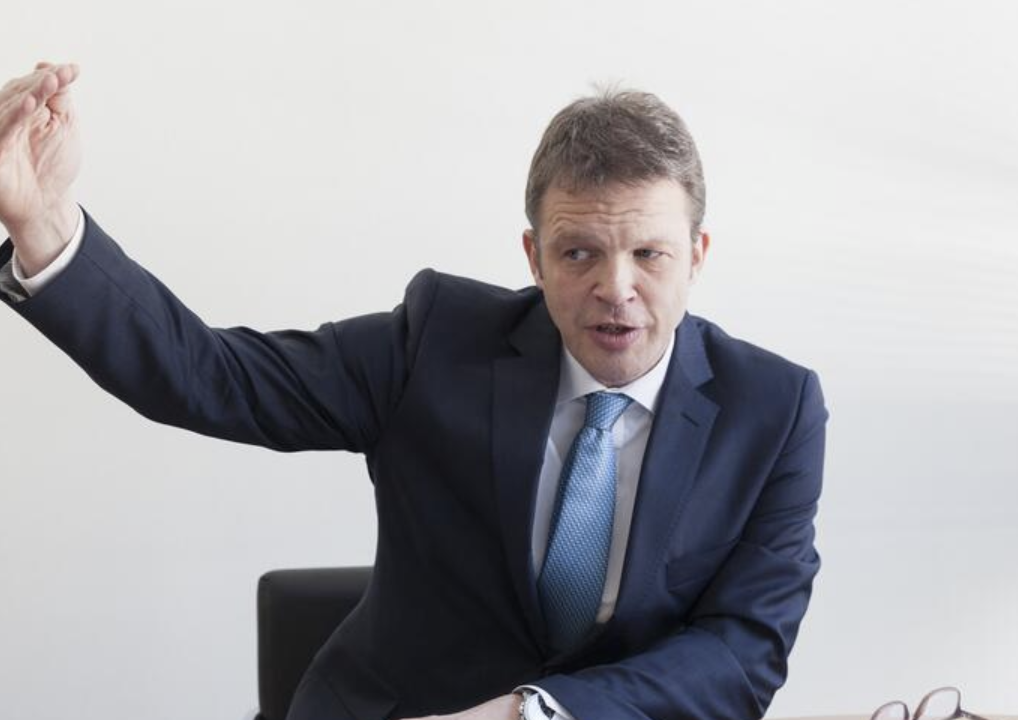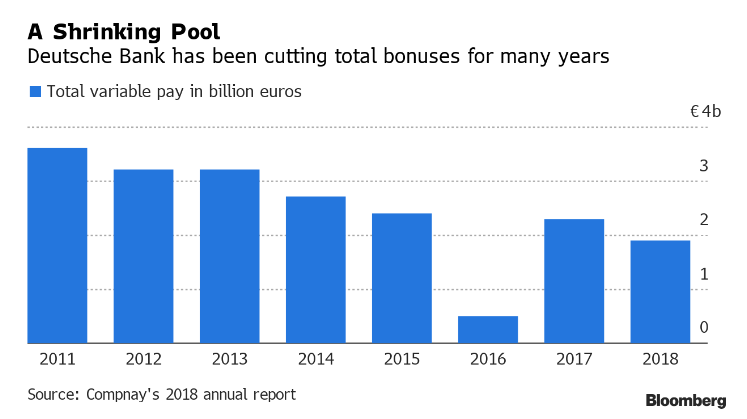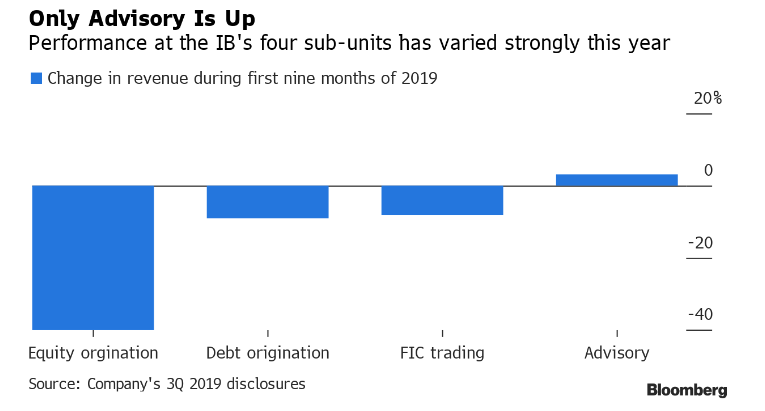A Sinking Deutsche Bank Faces An Existential Question: How Much Can It Spend On Bonuses?
After he backed away from a merger with Commerzbank earlier this year, Deutsche Bank CEO Christian Sewing was pressed by the bank’s board and its biggest investors to unveil a sweeping restructuring program to save Germany’s biggest and most unwieldy financial institution from system-threatening insolvency.
Christian Sewing
Businesses – including pieces of the bank’s equity-trading apparatus – were either shuttered, sold off or moved to a revived “bad bank” unit. Sewing also embarked on what has been, by some counts, the biggest mass layoffs to rock Wall Street since Lehman’s bankruptcy. So far this year, the bank has fired 5,000 employees, mostly from its investment banking businesses, with another 13,000 to go.
Amid all of the bloodletting and legal chaos (it wouldn’t be Deutsche Bank without a raft of new civil and criminal actions by regulators across the globe, though the bank recently settled with Frankfurt prosecutors for a small fine, according to Bloomberg), Sewing must now confront a serious problem: With everybody, including senior employees who have been fleeing to rivals en masse, running scared, how will DB retain top talent, especially with a slimmed-down bonus pool, the culmination of several years’ of cuts.
A team of BBG reporters address this question in a Q&A that examines how Sewing can make the best use of his under-€2 billion bonus pool.
* * *
How can Deutsche Bank balance departures with hires?
More than a dozen high-profile executives from the investment banking units that Sewing wants to keep have joined rivals since May, when the CEO dropped the first big hint that he was going to take an ax to the business. Many top performers are only staying because compensation is still comparatively good, even though morale has slumped after years of piecemeal cuts to the business, according to people familiar with the matter. The bank points to new hires and says that attrition in the investment bank is actually down compared with the prior two years. It has hired almost 30 managing directors and directors in corporate finance since the beginning of the year, investment bank head Mark Fedorcik said by phone. “We pay for performance and our clients and team understand and appreciate our strategy and areas of strength,” he said.
How much money can Sewing spend?
Deutsche Bank spent 1.9 billion euros ($2.1 billion) last year on bonuses. The bank has said the size of the pool this year will reflect the shrinking workforce, which is down 5% so far, and the fact that it has shuttered equities trading. European investment bankers more generally are facing smaller bonuses this year. The CEO maintains that the bank still has the means to compensate top talent even as it undertakes one of the most radical restructurings in its history. “We will compensate our people according to their operating performance,” he said in July after announcing 18,000 job cuts and a retreat from equities trading. The bank will pay “in a competitive way.”
What businesses will Sewing focus on?
Fedorcik said his corporate finance unit seeks to grow advisory and debt origination and he pointed to several recent hires including Paolo Cicchine while promising more next year. He’s also vowed to keep a sizable equity capital markets business despite shuttering equities trading.
However, that unit — along with M&A advisory — has been particularly hard hit by departures since May.
As for securities trading, equities is essentially gone but the bank wants to remain strong in fixed-income trading, a business overseen by Ram Nayak. The lender has highlighted credit and foreign exchange and the unit has recently added a few people.
How has the investment bank performed?
While the CEO has vowed to at least stabilize the investment bank, revenue was down 11% in the first nine months of the year and pretax profit plummeted 47%. The units where most of the departed executives used to work are no exceptions. Income from helping companies raise money through share sales is down 40% over the period. The business of advising companies on deals did better, rising 3%. The malaise is being reflected in a comparison with peers. Deutsche Bank slipped to 15th rank in advising on mergers and acquisitions this year, from 11th in 2018 and eighth the year before, according to data compiled by Bloomberg. It has fallen to 12th place in global equity offerings, from eighth. “When I look at our revenues and where we’re heading from a 2019 perspective, I’m very confident versus where we were in ’18,” said Fedorcik.
What other options does Sewing have?
The bank in the past increased the spread between bonus payments for top performers and the rest as a way to save money while making sure the most important people stay. To replace expensive executives who leave, Deutsche Bank brought in more junior hires. There’s also an internal debate about how many departures can be filled through reassigning bankers from other parts of the business, the people familiar said, asking not to be identified discussing internal deliberations.
Source: Bloomberg
Tyler Durden
Sat, 12/07/2019 – 17:30
via ZeroHedge News https://ift.tt/2Pr850e Tyler Durden



